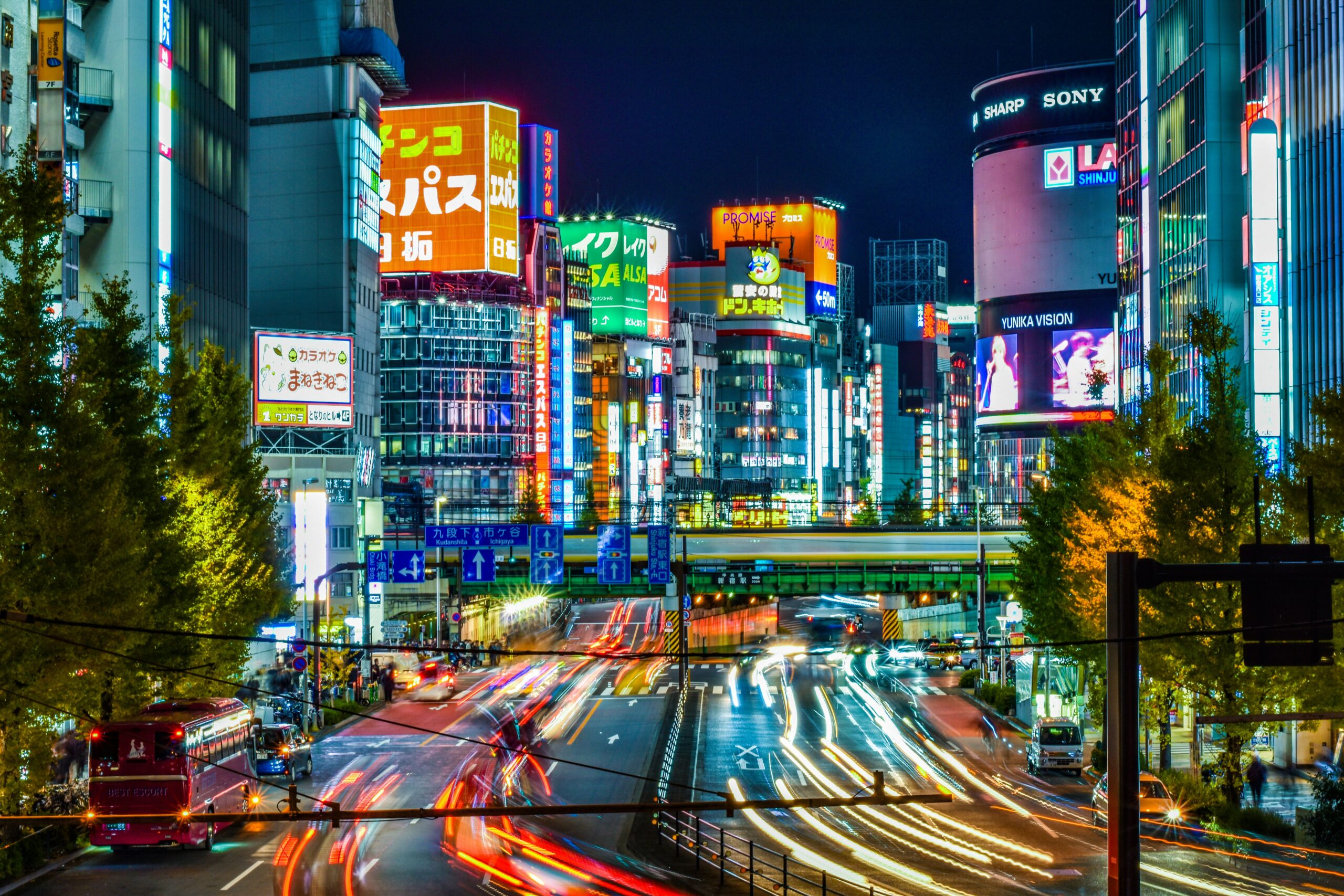August. Tokyo was burning under the midsummer sun.
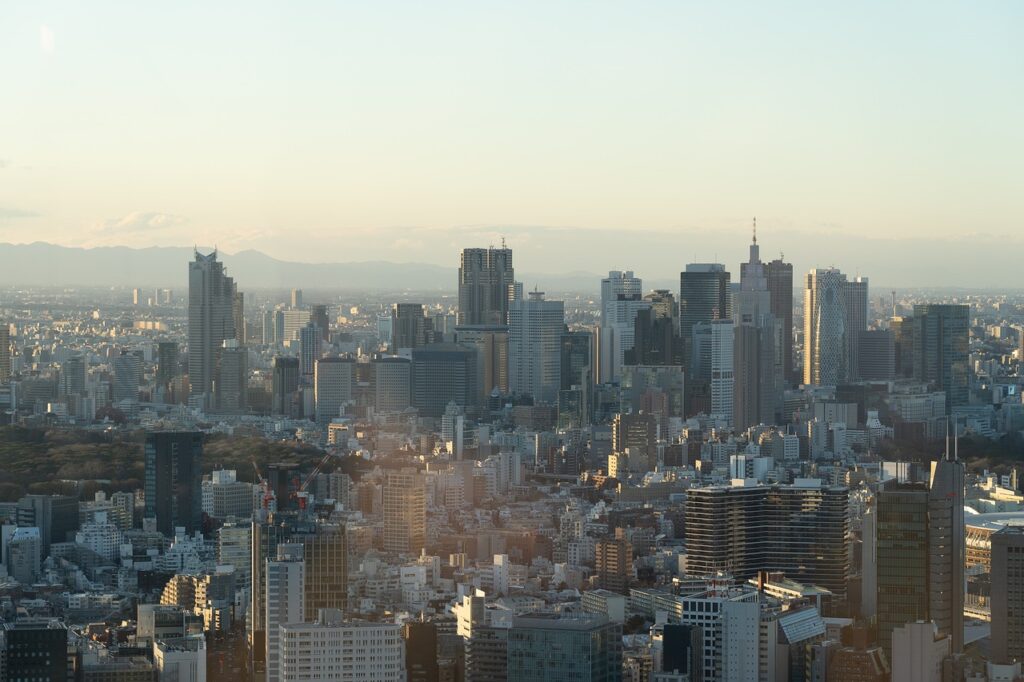
I arrived at the airport a little after 9 a.m., on a direct flight from London. I had barely slept during the flight, but the sight of Tokyo from the airplane window jolted me awake. Countless buildings stood packed together, with rivers and roads slicing through the city like veins. As I stepped outside the airport, I was struck by the weight of the humidity and the distinct summer scent—a blend of earth and concrete. The voices of strangers, the sounds of trains, the unfamiliar letters on signs—everything reminded me that I had arrived from elsewhere.
I was tired. The voices of people and the constant buzz of notifications had started to feel distant in my everyday life. That was when, for no clear reason, I felt drawn to a place called Shinjuku.
My first stop was Shinjuku Gyoen National Garden. Originally the estate of a feudal lord during the Edo period, it became a royal garden during the Meiji era and is now open to the public. In the summer, the crowds are thinner, and a quiet stillness settles over the grounds. The deep greenery filtered the sunlight into gentle beams, and the only sound was the rustling of leaves in the breeze. I lay down on a wide patch of lawn and looked up at the sky. The cumulus clouds floated like giant sculptures, slowly shifting form. The pace of time here felt like it belonged to a different world.
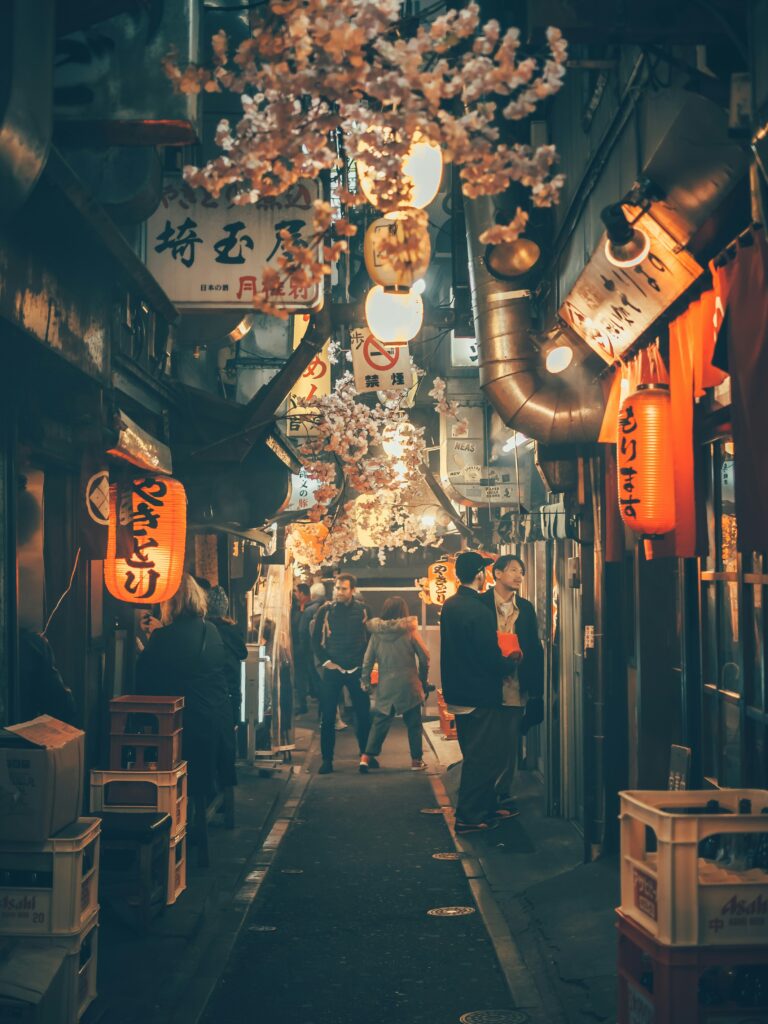
Next, I wandered into Omoide Yokocho—“Memory Lane.” Even during the day, the narrow alley was dimly lit, red paper lanterns swaying gently. The air was filled with the smell of grilled fish and soy sauce. I found a tiny diner nestled among the old izakayas, its exterior straight out of the Showa era. I slid open the wooden door and was greeted by a well-worn wooden counter and the warm laughter of regulars. I ordered the miso-simmered mackerel set. The fatty fish was coated in a sweet-savory miso glaze that paired perfectly with the rice. A thin, office worker–type middle-aged man sitting next to me chuckled, “I’ve been coming here for twenty years.”
In the afternoon, I headed to the Tokyo Metropolitan Government Building’s observation deck. From 200 meters above the ground, the city shimmered under the sun. The glass towers reflected the light like crystals, and far in the distance, Mount Fuji appeared as a faint silhouette. The city before me looked like an intricately built scale model. And realizing that I was just a single “dot” within that vast landscape brought a strange sense of comfort.
As the sun began to set, I stopped by Hanazono Shrine. Passing through the bright red torii gates, the noise of the city faded behind me. Though located just steps away from Shinjuku’s bustling entertainment district, the shrine felt like a place where time had paused. The main hall stood at the top of a stone stairway, flanked by stone guardian dogs resting in the shade. The faint scent of incense lingered, and the cicadas’ chorus echoed across the grounds. I made a wish: to be honest with myself as I am now.
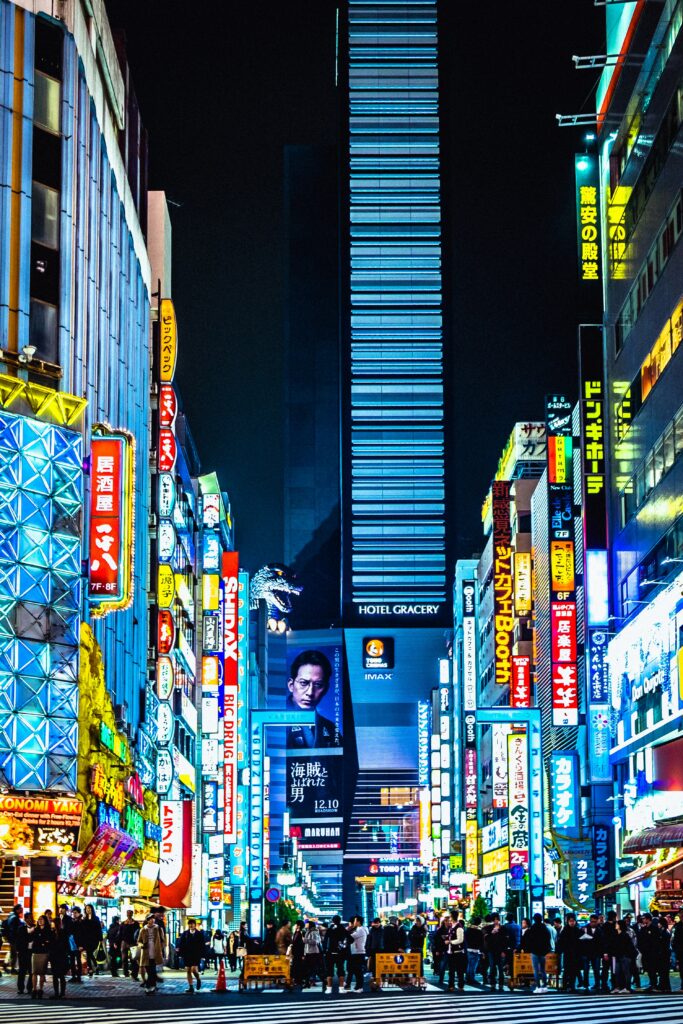
Night fell at the west exit of Shinjuku Station. Neon lights began to glow, illuminating the streets. People moved nonstop, everyone seemingly in a hurry to get somewhere. Amid that torrent of motion, I heard the clear sound of a guitar—and stopped in my tracks.
There she was: a young woman, alone. Dressed simply in a T-shirt, jeans, and sneakers, she wiped sweat from her brow and stared straight ahead as she sang. Her voice and melody floated effortlessly through the street, drawing people in. A small crowd had formed, each person quietly taking in her music from their own distance.
Though I speak some Japanese, the words that came out of my mouth were in English.
“That was beautiful.”
She looked surprised, then smiled shyly.
“Thank you. That’s a new song, actually.”
Her English was remarkably fluent for a Japanese speaker. Soft in tone, but with clarity and strength.
Her name was Mina. Twenty-two years old. She was about to start working full-time next month. She had studied journalism at university—driven by a desire to communicate news and ideas. She said she enjoyed learning. But she also confessed something else.
“I’ve always loved singing. Since I was a child. I want to sing songs that reach people’s hearts. Songs that lift someone’s spirit. I’m excited to start working, but… singing is something I just can’t let go of.”
My final stop was a small bookstore café in Shinjuku. Tucked away down a backstreet, the quiet store had a café in the rear. Wooden shelves lined the walls, filled with books old and new. The air inside was cool and calm, with soft lighting and a kind of peace I hadn’t realized I needed. I ordered the seasonal matcha and white peach parfait. Bitter matcha ice cream, juicy slices of peach, crisp pastry, and a drizzle of dark sugar syrup—it tasted like summer in every bite.
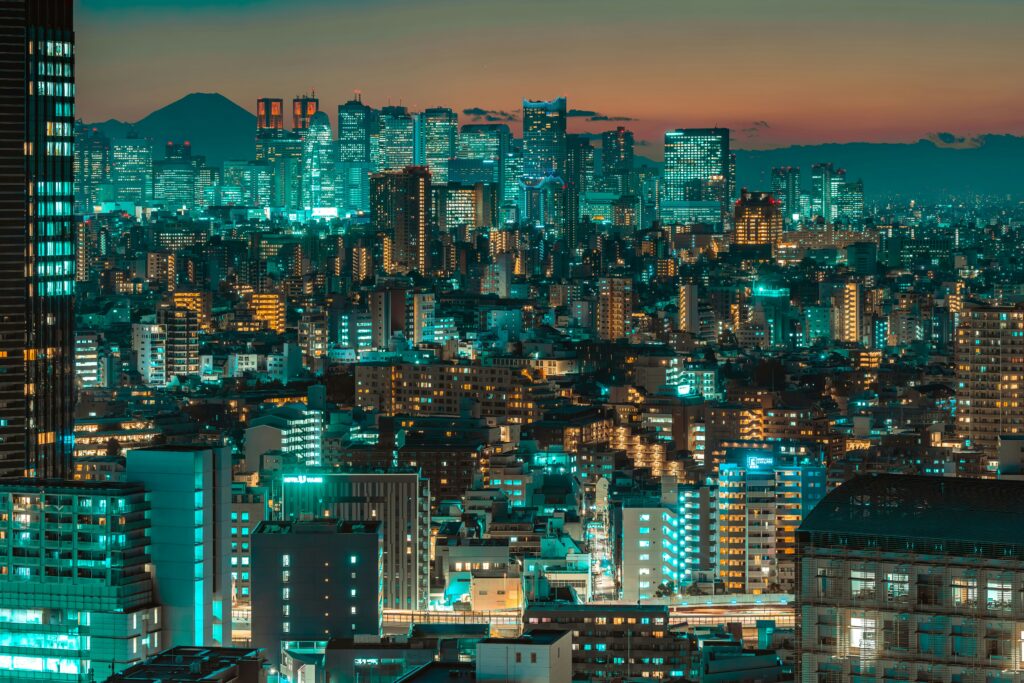
As my trip came to a close, I realized something: Shinjuku wasn’t just a sprawling collection of skyscrapers and train lines.
The city’s glass towers reflected thousands of neon lights, glowing like lanterns suspended in the night sky. In the crowd, I saw businesspeople in suits, travelers taking photos, young couples laughing, and musicians chasing dreams. All these lives and moments overlapped to form the “now” of this city. Standing in that stream of people, I felt a sense of nostalgia I couldn’t quite explain.
Even now, back in London, I remember Mina’s voice in that midsummer crossing. When the noise of life threatens to sweep me away, that melody reminds me to pause—to remember, quietly:
“Yes, this is my rhythm.”
Something New Travel

